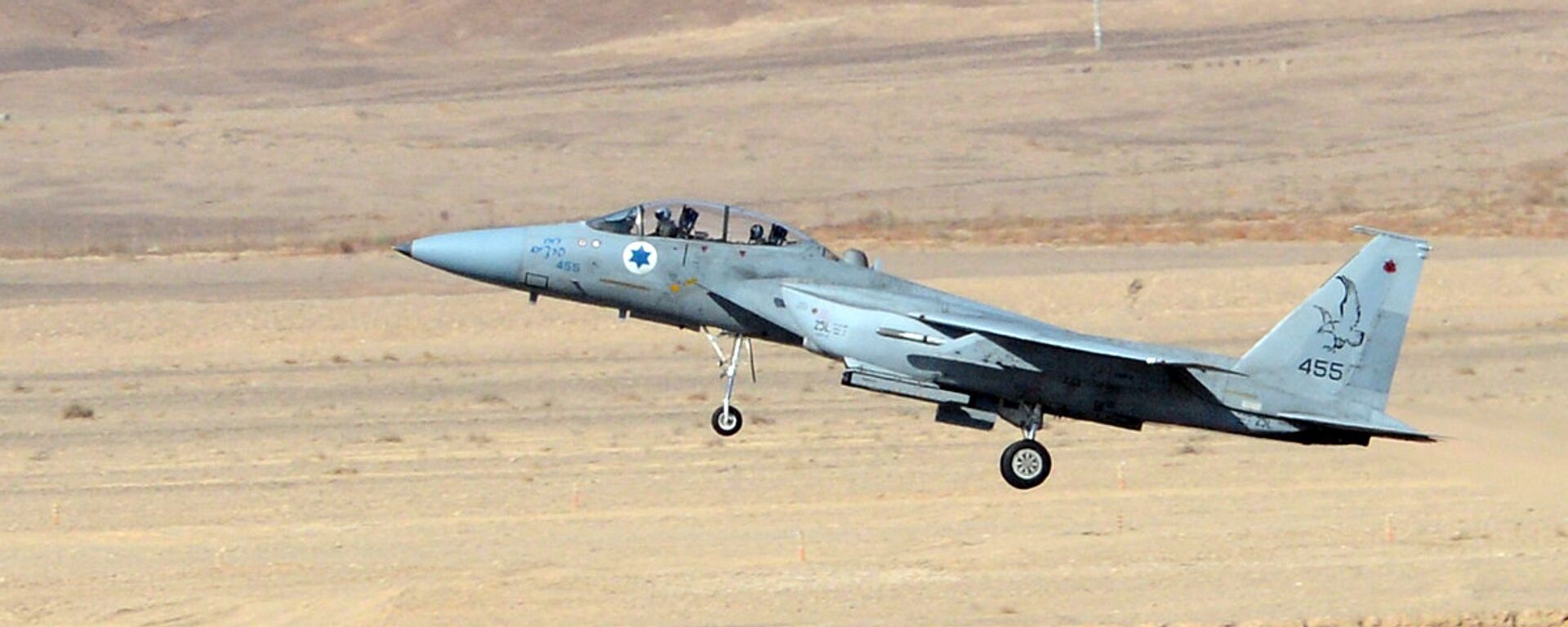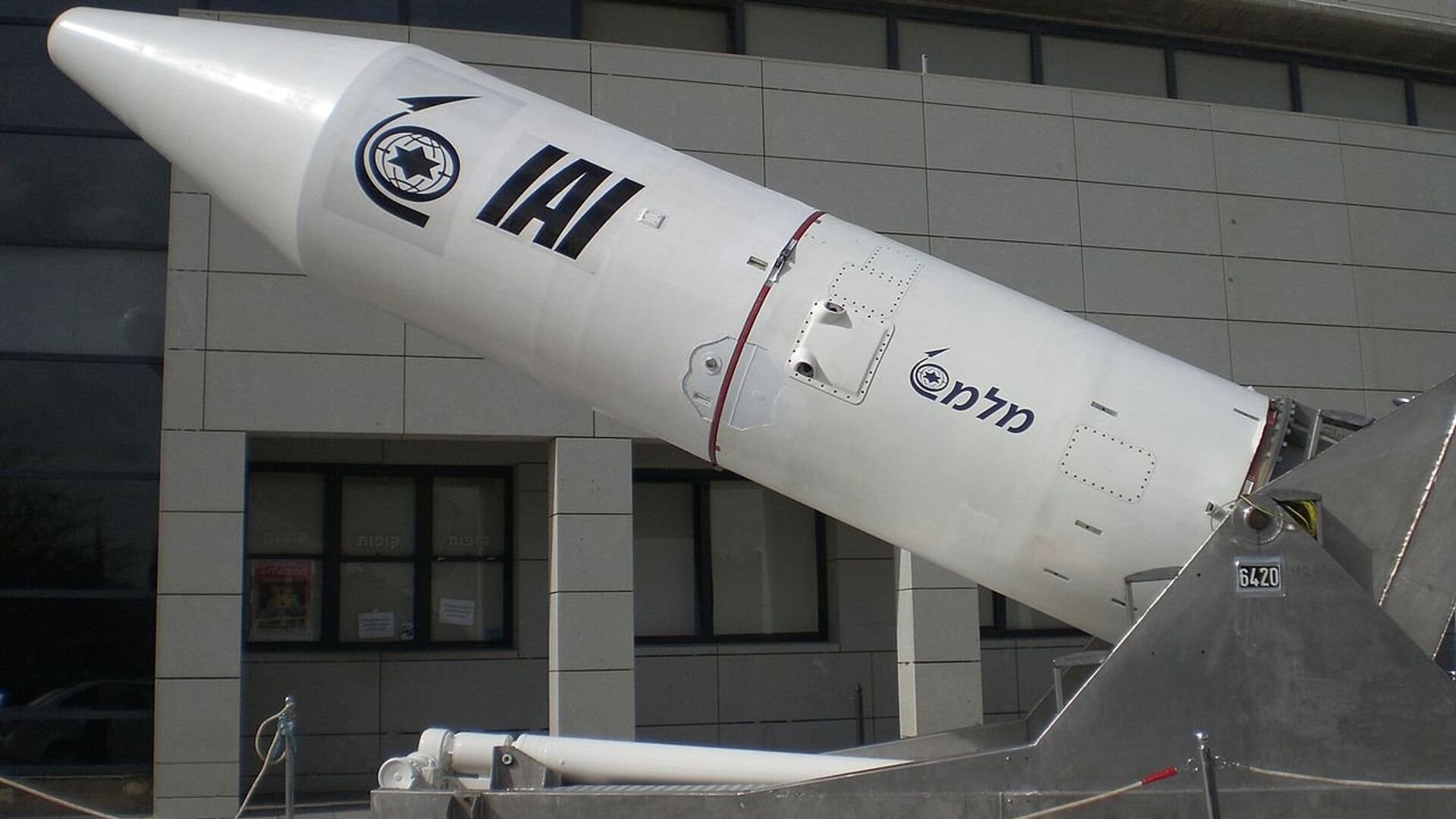https://sputnikglobe.com/20211013/tehran-accuses-tel-aviv-of-spreading-false-fabricated-claims-about-iran-while-stockpiling-nukes-1089885660.html
Tehran Accuses Tel Aviv of Spreading ‘False, Fabricated’ Claims About Iran While Stockpiling Nukes
Tehran Accuses Tel Aviv of Spreading ‘False, Fabricated’ Claims About Iran While Stockpiling Nukes
Sputnik International
Israel has repeatedly threatened to launch a military attack against Iran to stop its alleged nuclear weapons programme. Tehran has long denied having any... 13.10.2021, Sputnik International
2021-10-13T10:21+0000
2021-10-13T10:21+0000
2021-10-13T10:48+0000
israel
iran
nuclear
https://cdn1.img.sputnikglobe.com/img/106819/12/1068191268_0:120:1280:840_1920x0_80_0_0_e4832adbca0911f933d26421c38a3632.jpg
Israel’s nukes, and not Iran’s supposed nuclear weapons ambitions, are the true threat to the Middle East, Iran’s envoy to the United Nations General Assembly’s first committee on global nuclear disarmament has alleged.“Israel continues to defy all international regimes governing weapons of mass destruction by refusing to adhere to the [Non-Proliferation Treaty], the Chemical Weapons Convention and the Biological Weapons Committee,” Iranian representative Heidar Ali Balouji said, speaking at a committee meeting in New York City on Tuesday.Accusing the Jewish State of “seriously hampering” the creation of a nuclear-free Middle East, which he recalled was proposed by Iran in 1974, Balouji suggested that Tel Aviv’s nukes pose “the most serious threat” both to the security of regional states, and to the non-proliferation regime. Israel neither confirms nor denies possessing nuclear weapons, in a policy known as 'deliberate ambiguity'.Balouji accused Israel of making “standard practice” out of the “dissemination of false and fabricated accusations against regional countries, particularly the Islamic Republic of Iran…Nevertheless, it is quite evident that no amount of disinformation and manufactured crises can cover up the criminal nature, as well as the expansionist and warmongering policies, that this regime has pursued over the past 70 years”, he said. The diplomat went on to accuse Israel of violating the rights of Palestinians and other Arabs living in Israeli-occupied territories.Balouji’s comments follow remarks by Israeli Prime Minister Naftali Bennett earlier Tuesday calling on the UN Security Council to take action against Iran over its alleged nuclear weapons ambitions. Speaking at a conference in Jerusalem, Bennett suggested that Iran’s “behaviour” in the nuclear sphere was a global problem.The back-and-forth allegations about one another’s alleged nuclear potential are part of a decades-old nuke-related diplomatic battle between Iran and Israel. Israeli officials have long accused Tehran of secretly pursuing nuclear weapons, while keeping mum about Tel Aviv’s own suspected stockpile of nukes – estimated to number between 80 and 400 warheads. On Tuesday, in a break from standard Israeli claims that Iran could be just ‘weeks’ or ‘months’ from amassing the technical capability to build its first nuke, former Mossad chief Yossi Cohen told a news conference that Tehran was “not even close to acquiring a nuclear weapon”, thanks in part to the activities of Israeli intelligence (which in the past has included the assassination of Iranian nuclear scientists and sabotage attacks against Iran’s nuclear facilities).In 2018, Israel successfully lobbied the Trump administration to pull out of an international agreement on Iran’s nuclear programme known as the Joint Comprehensive Plan of Action (JCPOA), which promised the Islamic Republic sanctions relief in exchange for a commitment to limit its peaceful nuclear programme. Since coming into office in January, the Biden administration has held multiple rounds of negotiations with remaining JCPOA representatives in Vienna on reactivating the agreement, but talks have hit a roadblock, as neither side wants to take the first step to restoring the deal. Iran insists that the United States must first remove its crushing sanctions, and drop any aspirations to include Iran’s conventional missile programme into the nuclear agreement. Washington says Tehran has to bring its uranium enrichment and stockpiling activities back in line with limits established by the JCPOA.Iran first proposed the idea of a nuclear-free zone for the Middle East in a resolution at the United Nations General Assembly in 1974. The resolution, put forth amid growing regional concerns about Israel’s suspected nuclear ambitions, was put forth again by Iran in 2006 and 2015.
https://sputnikglobe.com/20211012/iran-not-even-close-to-nuclear-weapon-but-israel-can-act-alone-if-required-ex-mossad-chief-says-1089874220.html
israel
iran
Sputnik International
feedback@sputniknews.com
+74956456601
MIA „Rossiya Segodnya“
2021
News
en_EN
Sputnik International
feedback@sputniknews.com
+74956456601
MIA „Rossiya Segodnya“
Sputnik International
feedback@sputniknews.com
+74956456601
MIA „Rossiya Segodnya“
israel, iran, nuclear
Tehran Accuses Tel Aviv of Spreading ‘False, Fabricated’ Claims About Iran While Stockpiling Nukes
10:21 GMT 13.10.2021 (Updated: 10:48 GMT 13.10.2021) Israel has repeatedly threatened to launch a military attack against Iran to stop its alleged nuclear weapons programme. Tehran has long denied having any ambitions to build such arms, with both of its successive supreme leaders issuing religious rulings decreeing nukes and other weapons of mass destruction to run contrary to the tenants of Islam.
Israel’s nukes, and not Iran’s supposed nuclear weapons ambitions, are the true threat to the Middle East, Iran’s envoy to the United Nations General Assembly’s first committee on global nuclear disarmament has alleged.
“Israel continues to defy all international regimes governing weapons of mass destruction by refusing to adhere to the [Non-Proliferation Treaty], the Chemical Weapons Convention and the Biological Weapons Committee,” Iranian representative Heidar Ali Balouji
said, speaking at a committee meeting in New York City on Tuesday.
Accusing the Jewish State of “seriously hampering” the creation of a nuclear-free Middle East, which he recalled was
proposed by Iran in 1974, Balouji suggested that Tel Aviv’s nukes pose “the most serious threat” both to the security of regional states, and to the non-proliferation regime. Israel neither confirms nor denies possessing nuclear weapons, in a policy known as 'deliberate ambiguity'.
“Nevertheless, [Israel] attempts to portray Iran’s conventional weapons capabilities or its exclusively peaceful nuclear programme, which is under the most robust verification of the International Atomic Energy Agency, as a challenge to regional stability,” the diplomat said. “This is but a hypocritical move to distract attention away from the real danger posed to regional peace by Israel, particularly its nuclear weapon arsenals as well as clandestine and un-safeguarded nuclear installations and activities,” he alleged.
Balouji accused Israel of making “standard practice” out of the “dissemination of false and fabricated accusations against regional countries, particularly the Islamic Republic of Iran…Nevertheless, it is quite evident that no amount of disinformation and manufactured crises can cover up the criminal nature, as well as the expansionist and warmongering policies, that this regime has pursued over the past 70 years”, he said. The diplomat went on to accuse Israel of violating the rights of Palestinians and other Arabs living in Israeli-occupied territories.
Balouji’s comments follow remarks by Israeli Prime Minister Naftali Bennett earlier Tuesday calling on the UN Security Council to take action against Iran over its alleged nuclear weapons ambitions. Speaking at a conference in Jerusalem, Bennett suggested that Iran’s “behaviour” in the nuclear sphere was a global problem.
The back-and-forth allegations about one another’s alleged nuclear potential are part of a decades-old nuke-related diplomatic battle between Iran and Israel. Israeli officials have long accused Tehran of secretly pursuing nuclear weapons, while keeping mum about Tel Aviv’s own suspected stockpile of nukes – estimated to number between 80 and 400 warheads.
On Tuesday, in a break from standard Israeli claims that Iran could be just ‘weeks’ or ‘months’ from amassing the technical capability to build its first nuke, former Mossad chief Yossi Cohen told a news conference that Tehran was “not even close to acquiring a nuclear weapon”, thanks in part to the activities of Israeli intelligence (which in the past has included the assassination of Iranian nuclear scientists and sabotage attacks against Iran’s nuclear facilities).

12 October 2021, 21:07 GMT
In 2018, Israel
successfully lobbied the Trump administration to pull out of an international agreement on Iran’s nuclear programme known as the Joint Comprehensive Plan of Action (JCPOA), which promised the Islamic Republic sanctions relief in exchange for a commitment to limit its peaceful nuclear programme. Since coming into office in January, the Biden administration has held multiple rounds of negotiations with remaining JCPOA representatives in Vienna on reactivating the agreement, but talks have hit a roadblock, as neither side wants to take the first step to restoring the deal. Iran insists that the United States must first remove its crushing sanctions, and drop any aspirations to include Iran’s conventional missile programme into the nuclear agreement. Washington says Tehran has to bring its uranium enrichment and stockpiling activities back in line with limits established by the JCPOA.
Iran first proposed the idea of a nuclear-free zone for the Middle East in a resolution at the United Nations General Assembly in 1974. The resolution, put forth amid growing regional concerns about Israel’s suspected nuclear ambitions, was put forth again by Iran in 2006 and 2015.


